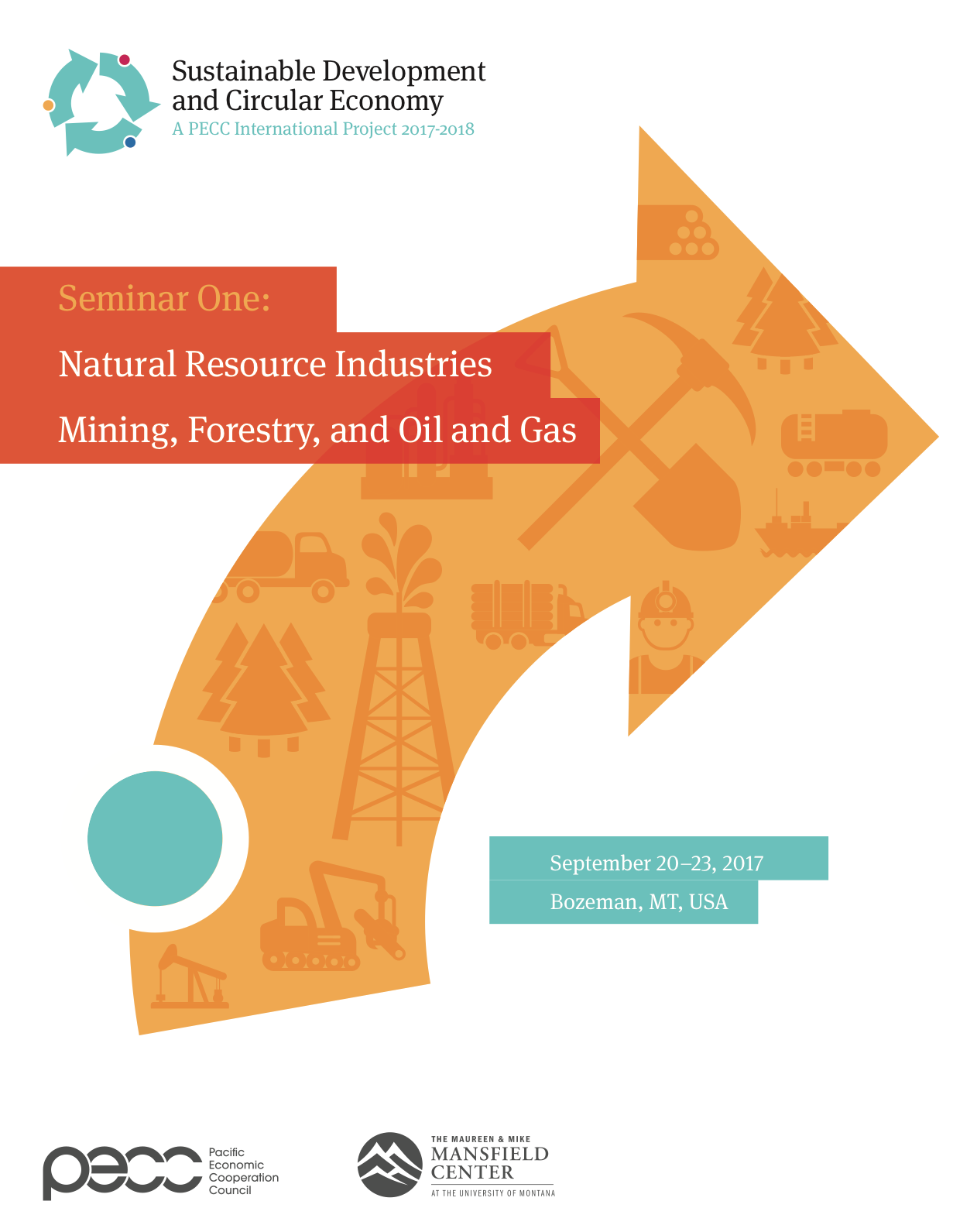
Many PECC economies depend upon revenue from natural resource utilization. This includes a wide range of primary and secondary industries involving forestry, mining, and oil and gas development. Natural resource extraction and the value of these commodities can represent significant percentages of GDPs. However, growing concern over climate change, biodiversity, and human health impacts has resulted in an increasingly complex set of domestic and international government regulations, interventions, and analyses concerned with enforcing sustainable environmental policy.
In response to this web of rules, regulations, laws and emerging international treaties, many companies have begun investing in a range of innovative approaches to achieving sustainability objectives while growing their respective financial bottom-lines. As necessity is often the mother of invention, international leaders in forestry, mining and oil and gas industries are utilizing technological innovation, advances in data science, and practical solutions to achieve competitive positioning. These investments have at least three main features: 1) a realization it is often in the best interest of the industry to be proactive in relationship to sustainability goals; 2) developing a long-term strategic goal of optimizing profit with sustainability metrics can be financially beneficial across the entire value chain; and 3) an increasing realization by primary resource industries that the global consumer voice and buying power is playing an increasing role in commodity value-add utilization and consumption; ignoring potential brand devaluation by global, multinational consumer activism carries increasing risk.
The first seminar of 'Sustainable Development & Circular Economy' project brought together government, research, business and technology leaders who are pioneering innovative solutions to achieve economic performance within regional, national, and international sustainability policy frameworks. The group shared their ideologies, best practices, and experiences on achieving economic objectives within the context of an increasingly challenging global regulatory framework. Specifically, the participants addressed circular economic capacity in the context of their respective industries and the reality of achieving sustainability goals.
The group also explored these topics against active international conversations, negotiations, and endorsements of the 2016 Paris Agreement on Climate Change. This important milestone set into motion a range of sustainability goals and objectives that impact global economic – ecological systems and the inhabitants of these interconnected systems. Seminar participants were challenged to analyze, discuss and share real-world examples of circular economic features that meet or exceed Paris Agreement goals and process improvements.
This first seminar was organized in Bozeman, Montana (United States) jointly with the Maureen and Mike Mansfield Center, University of Montana on September 20-23, 2017.
Sustainable Development and Circular Economy (Seminar 1): Natural Resource Industries – Mining, Forestry, and Oil & Gas | Bozeman, Montana, USA | September 20-23, 2017
Recent Uploads
State of the Region Report 2023-2024
PECC Statement for APEC MRT 2023
PECC Update for APEC SOM 2 2023
PECC Signature Project: Opportunities for Supply Chain Decarbonization in APEC Economies
PECC International Project: Understanding Digital Skills in the Digital Economy Era
PECC Signature Project: Primer on Economic Integration Issues posed by the Digital Economy
State of the Region: Special Report on Covid-19
Pacific Currents
Global value chains: From fruitful discussions to meaningful actions
Juan Navarro, Associate Faculty, Royal Roads University
Climate change in SOTR
Christopher Findlay, Tilak Doshi and Eduardo Pedrosa
Digital Technologies, Services and the Fourth Industrial Revolutions
Submitted by Jane Drake-Brockman, Christopher Findlay, Yose Rizal Damuri and Sherry Stephenson
COVID-19 has Exposed Major Gaps in our Social Safety Nets: In a Post-COVID World Will these Gaps be Closed?
Hugh Stephens
Vice Chair, CANCPEC; Distinguished Fellow, Asia Pacific Foundation of Canada; Executive Fellow, School of Public Policy at the University of Calgary
Multilateral Cooperation is a Safeguard against Pandemics
Rebecca Fatima Sta Maria
Executive Director, APEC Secretariat
International cooperation during COVID-19
Sungbae An
Senior Research Fellow, Department of International Macroeconomics and Finance, Korea Institute for International Economic Policy (KIEP)
Drastic measures to stop spread of COVID-19 are necessary
Charles E. Morrison
Adjunct Fellow and Former President of the East-West Center; Former Co-Chair, PECC
ASEAN-China cooperation in time of COVID-19 pandemic
Jusuf Wanandi
Vice Chair, Board of Trustees, CSIS Foundation; Former Co-Chair of PECC
